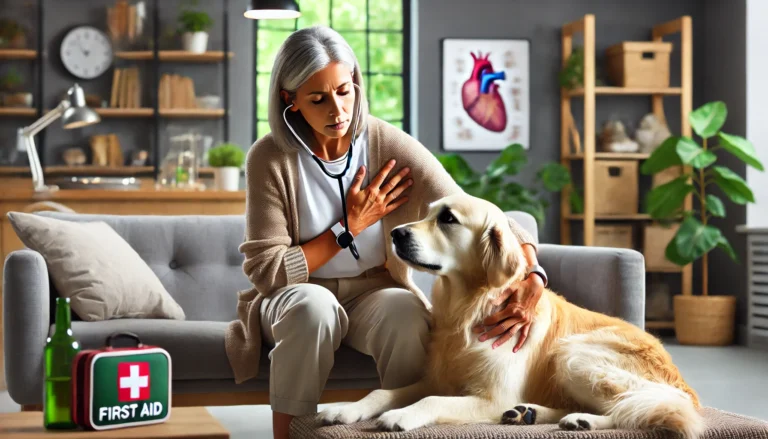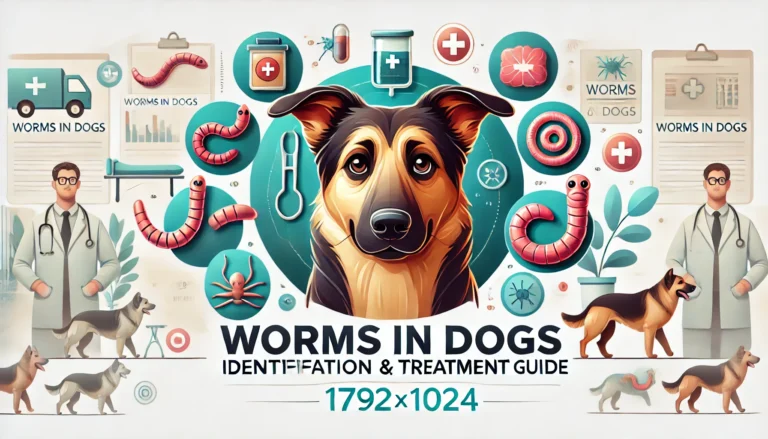Upset stomach in dogs

Upset stomach in dogs is really a tricky question. Dealing with a dog’s upset stomach can be really stressful. When our friend start throwing up or don’t want to eat, it’s tough to see them feeling low. But there are ways to figure out what’s bothering their tummies and how to help them feel better. Let’s explore why dogs get upset stomachs and what we can do about it to make them feel more comfortable.

6 Reasons of upset stomach in dogs
A number of reasons can be pointed out to be responsible of upset stomach in dogs. Here’s a brief explanation for some of the main reasons:
- Dietary changes: Animals especially dogs can have sensitive stomachs, so sudden changes in their food can lead to digestive upset. It’s best to transition them gradually when changing their diet.
- Eating something bad: Dogs are curious and sometimes eat things they shouldn’t, like garbage or spoiled food. This can cause stomach irritation or even poisoning and the final result comes out to be upset stomach in dogs.
- Stress and anxiety: Dogs can get stressed from various factors like loud noises (thunderstorms, fireworks, typhons), being in new environments, or feeling anxious when left alone (separation anxiety). Stress can affect their digestion and lead to upset stomach in dog.
- Infections: One of the most known reasons of upset stomach in dog are infectious diseases. Viruses (like parvovirus), bacteria (such as salmonella), or parasites (like giardia) can infect a dog’s digestive system, causing vomiting, diarrhea, and discomfort.
- Underlying health issues: Conditions like pancreatitis (inflammation of the pancreas), inflammatory bowel disease (IBD), or food allergies can cause chronic digestive issues in dogs, leading to recurrent upset stomachs.
- Medications: Some medications, especially if not given with food or if they irritate the stomach lining, can cause digestive upset in dogs. It’s important to follow medications as directed by qualified vet.
Understanding these factors helps to identify the cause of upset stomach in dog and take appropriate steps to manage it effectively and timely.
8 symptoms of upset stomach in dogs

Certainly! Here’s a bit more detail on each symptom:
- Vomiting: This is when your dog brings up food or liquid from their stomach. It can happen once or multiple times and may vary in consistency or color.
- Diarrhea: Loose, watery stools that can be frequent and may contain blood or mucus. It’s often a sign of irritation or inflammation in the digestive system.
- Loss of appetite: Your dog might refuse their regular meals or snacks, or they may eat much less than usual. This could indicate stomach discomfort or a lack of interest in food.
- Abdominal discomfort: Your dog may appear restless, repeatedly change positions, or assume a hunched posture. They might also paw at their belly or avoid being touched there.
- Excessive drooling: More saliva than usual, often accompanied by frequent licking of the lips. This can indicate nausea or discomfort in the mouth or throat.
- Flatulence: Increased gas production with a noticeable odor. While some gas is normal, excessive flatulence can signal digestive upset or dietary issues.
- Lethargy: Your dog may seem unusually tired, lacking energy, or reluctant to engage in usual activities like playing or going for walks.
- Whining or vocalization: Signs of discomfort or distress, often accompanied by seeking attention, pacing, or restlessness.
These symptoms together or individually can indicate that your dog’s stomach isn’t feeling well. Monitoring these signs and their duration can help you determine if a visit to the vet is necessary to address the underlying cause.
what should be done incase of upset stomach in dogs?
It is always a better idea to pay visit to vet for immediate measures. But, if vet is not available due to some issues, then following measures should be done:
- Withhold food: Giving your dog’s stomach a break by not feeding them for 12-24 hours can help calm their digestive system. This gives their stomach time to settle and reduces the chance of further irritation.
- Offer bland food: After the fasting period, reintroduce easily digestible, bland food like boiled chicken (without skin or bones) and plain white rice. These are gentle on the stomach and can help ease them back into eating.
- Hydration: Make sure your dog has access to fresh water at all times to prevent dehydration. You can also offer electrolyte solutions designed for pets to help replace lost fluids.
- Monitor closely: Keep a close eye on your dog for any changes in their condition. Watch out for signs of dehydration like dry gums or lethargy. If symptoms persist or worsen, contact your vet for advice.
- Medication caution: Avoid giving your dog medications without veterinary guidance. Some human medications are toxic to dogs, so it’s best to only use medications prescribed by your vet.
- Rest and comfort: Provide a calm, quiet environment for your dog to rest. Minimize stressors and allow them to recuperate undisturbed.
- Avoid irritating foods: Steer clear of fatty, spicy, or unusual foods that could further upset their stomach. Stick to the bland diet until their stomach settles.
Following these steps can often help alleviate mild cases of upset stomach in dogs. However, if your dog shows severe symptoms like persistent vomiting, bloody diarrhea, abdominal pain, or if they seem very unwell, it’s crucial to seek veterinary attention promptly. They can diagnose the underlying cause and provide appropriate treatment to help your dog recover.
8 home made remedies for upset stomach in dogs
Certainly! Here are some homemade remedies that can help soothe an upset stomach in dogs:
- Fasting: Temporarily withhold food for 12-24 hours to allow the stomach to settle.
- Bland diet: Offer small amounts of boiled chicken (without skin or bones) and plain white rice after the fasting period to ease digestion.
- Pumpkin: Plain canned pumpkin (not the spiced pie filling) can help firm up stools and soothe the stomach due to its fiber content.
- Bone broth: Plain, homemade bone broth can provide hydration and some nutrients to help settle the stomach.
- Probiotics: Plain yogurt or probiotic supplements (specifically for dogs) can help restore the balance of good bacteria in the gut.
- Peppermint tea: A small amount of cooled peppermint tea (without caffeine) can help ease nausea and calm the stomach.
- Coconut water: Provides hydration and electrolytes, which can be beneficial if your dog is mildly dehydrated.
- Ginger: A small amount of fresh ginger (grated) can be added to food to help settle the stomach and reduce nausea.
These home remedies can often provide relief for mild cases of upset stomach in dogs. However, if your dog’s symptoms persist or worsen, or if they show signs of severe illness, it’s important to seek veterinary care promptly.







